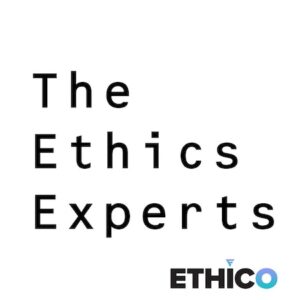
When operations span across borders, navigating local regulations and ethical standards becomes even more crucial. As evidenced by Corficolombiana’s case, neglecting these measures can lead to hefty legal ramifications and significant economic repercussions. In this episode of Corruption, Crime and Compliance, Michael Volkov unravels the Corficolombiana and Group Aval scandal, shedding light on the importance of implementing and maintaining robust ethics and compliance programs for global companies.
You’ll hear Michael talk about:
- Corfico is a subsidiary of the Colombian financial behemoth, Grupo Aval. The two entities agreed to substantial settlements with both the DOJ and SEC, stemming from allegations of a bribery scheme in Colombia.
- It emerged that Corfico had conspired with Odebrecht, a Brazilian construction firm, to pay around $23 million in bribes to influential Colombian government officials to clinch the project. The DOJ’s settlement with Odebrecht throws more light on the matter.
- Corfico’s forthcoming cooperation with both DOJ and Colombian authorities demonstrated their intent to amend their ways.
- Corfico embarked on extensive remedial measures, which the DOJ acknowledged and appreciated. This included a comprehensive root cause analysis and subsequent enhancements to their corporate governance and controls.
- Corfico also revamped its compliance program, introducing improved reporting, investigation, and disciplinary procedures and revisited its anti-corruption compliance program.
- The DOJ extended a 30% fine reduction to Corfico, a significant reprieve. What stood out, however, was the decision against appointing an independent compliance monitor in this case.
- Such international scandals accentuate the risks that large projects in foreign lands pose. Drawing parallels with the ABB case, it’s clear that ethics and compliance are non-negotiables for global firms.
KEY QUOTES
“The DOJ credited Corfico’s cooperation, citing its production of facts obtained through the company’s internal investigation, making numerous detailed factual presentations that distilled certain key factual information producing documents that the government may not have been able to get access to because of foreign data privacy laws providing sworn testimony from Columbia.” – Michael Volkov
“Corfico promptly engaged in extensive remedial measures, including, among other things, conducting a root cause analysis of the bribery scheme identified during the internal investigation. Promptly took the actions to enhance its corporate governance and controls and joint venture entities as well as improved its oversight of noncontrolled joint ventures and investments, overhauled its compliance program… As a result of this, the DOJ awarded Corfico a 30% reduction off the bottom of the applicable guidelines fine range.” – Michael Volkov
“It’s always good to look at the underlying conduct, and imagine: If you’re working in a company, with your compliance program, would you have been able to detect this? How would your compliance program have prevented this from occurring?” – Michael Volkov
Resources







